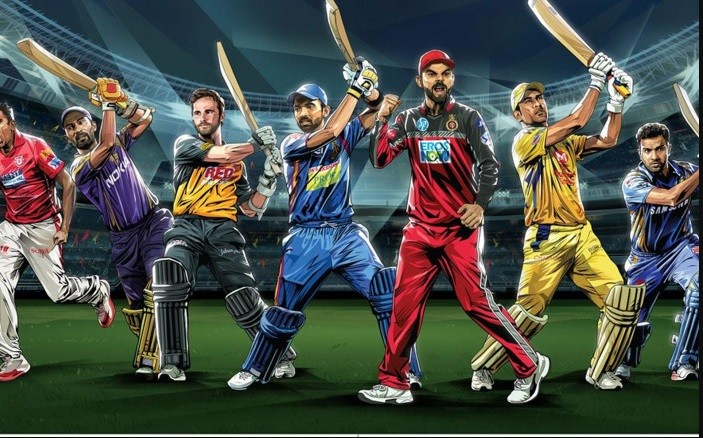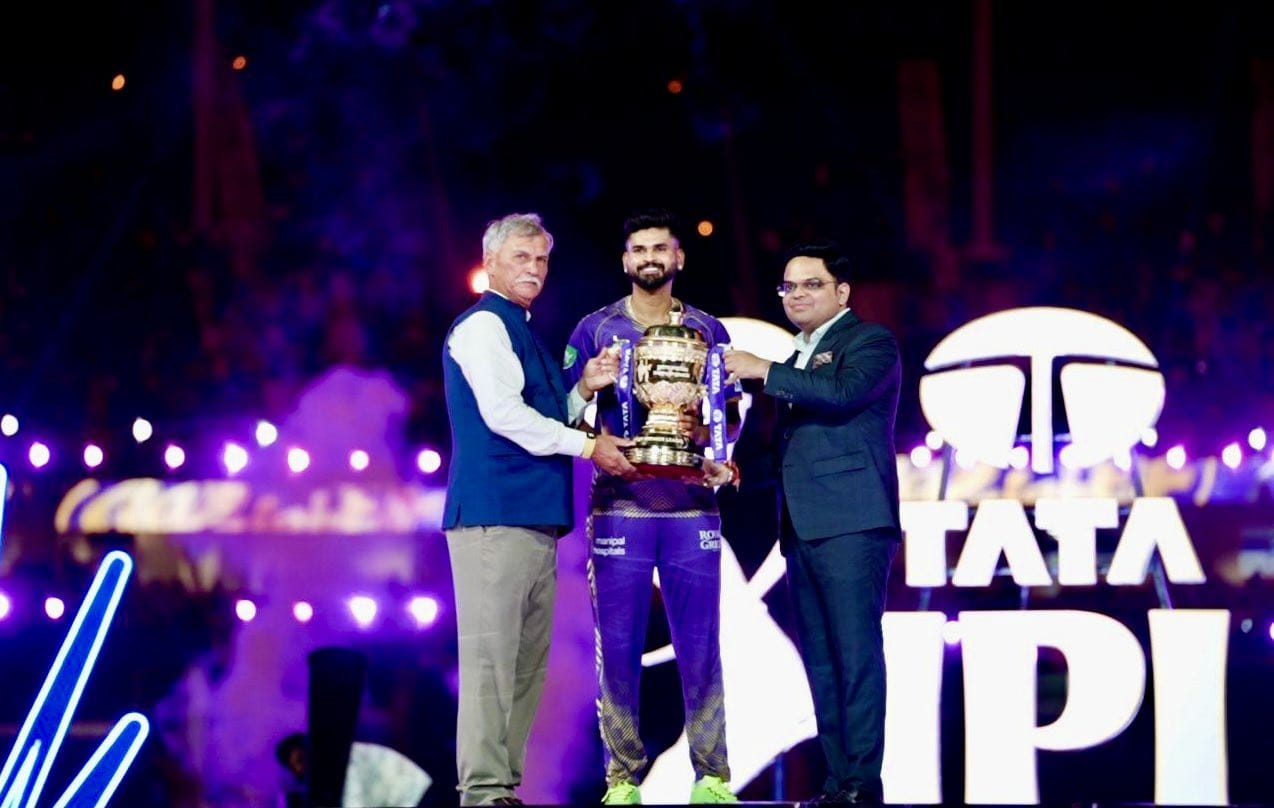What is the Indian Premier League (IPL)? introduction
The Indian Premier League (IPL) is a professional Twenty20 cricket league in India. It was founded by the Board of Control for Cricket in India (BCCI) in 2007 and is currently regarded as one of the most popular domestic cricket leagues globally. The tournament follows a franchise system, with ten teams representing different cities or regions in India.
Each year, the IPL attracts some of the best cricket players from around the world, making it a truly global event. The league has been instrumental in providing young Indian and global cricketers with opportunities to showcase their talent and learn from international players. Additionally, it has also helped revive interest and investment in domestic cricket.
The IPL season usually takes place between March and May, with matches held across various stadiums throughout India. The league format involves each team playing each other twice during the round-robin stage, followed by playoffs to determine the finalists. Not only does the IPL serve as an avenue for top-class cricketing action, but it also provides entertainment value through its glitzy opening ceremonies and celebrity endorsements.
Format: Structure and rules of the tournament
The Indian Premier League (IPL) is a professional Twenty20 cricket league in India, consisting of ten teams representing different cities. The format and structure of the tournament follow a round-robin group stage, followed by playoffs and finals. In the round-robin stage, each team plays against every other team twice – once at home and once away. This ensures that all teams get an equal opportunity to showcase their skills and compete with each other.
After the round-robin stage, the top four teams on the points table qualify for the playoffs. The playoffs consist of two qualifiers, an eliminator, and a final. The top two teams from the group stage face off in the first qualifier, where the winner secures a direct spot in the final. Meanwhile, the third and fourth-placed teams play in an eliminator match to determine who will join them in the second qualifier against the losing team from the first qualifier.
In the case of tied matches during any stage of IPL, there are specific rules to determine a winner through Super Over or bowl-out depending on certain factors like available playing time or weather conditions. Overall, this format ensures competitiveness among all participating teams while also providing thrilling matches for fans throughout its duration.
Teams: Overview of the participating franchises
The Indian Premier League (IPL) is a T20 cricket league in India that has seen the participation of several franchises over the years. These franchises are owned by various individuals and corporations from different parts of the country. Each franchise represents a specific city or state, creating an intense sense of regional pride among fans.
Some of the most successful and popular franchises in IPL history include the Mumbai Indians, Chennai Super Kings, and Kolkata Knight Riders. The Mumbai Indians have won the tournament a record five times, making them one of the most dominant teams in IPL history. Led by iconic cricketer Rohit Sharma, they boast a strong batting lineup and a formidable bowling attack.
The Chennai Super Kings have also been highly successful, winning three IPL titles. Under the leadership of former Indian captain MS Dhoni, they have established themselves as one of the most consistent teams in the tournament. Known for their solid team chemistry and strategic gameplay, they are always considered strong contenders.
Another notable franchise is Kolkata Knight Riders (KKR), which has won two IPL titles so far. Co-owned by Bollywood actor Shah Rukh Khan, KKR enjoys immense popularity among fans across India due to its star-studded lineup and entertaining on-field performances. With charismatic players like Andre Russell and Sunil Narine on their side, KKR never fails to deliver thrilling matches.
Overall, these participating franchises play a crucial role in shaping the excitement and competitiveness of IPL matches.
Star Players: Notable cricketers in IPL history
The Indian Premier League (IPL) has witnessed several star players who have significantly impacted the tournament’s history. One such player is Mahendra Singh Dhoni, the former captain of the Chennai Super Kings. Known for his calm and composed demeanor on the field, Dhoni’s leadership skills and exceptional batting prowess have played a crucial role in taking his team to multiple IPL victories. His ability to finish matches with his powerful hitting and innovative shot selection has earned him the reputation of being one of the best finishers in cricket.
Another notable cricketer in IPL history is Virat Kohli, who has been associated with Royal Challengers Bangalore since the inception of the league. Kohli’s consistent performances year after year have made him an indispensable asset for his team. The batsman holds numerous records in IPL, including scoring the most runs in a single season. With a strong technique and an aggressive style of play, Kohli has established himself as one of India’s finest batsmen and an icon in T20 cricket.
World stars from Top teams like Australia, England, South Africa, New Zealand, west indies, and other countries participate in this league. These star players bring their immense talent to their respective teams and contribute significantly towards making each edition of IPL more thrilling and competitive. Their presence adds glamour to this extravagant tournament, attracting fans worldwide to witness their extraordinary skills on display.
Impact: Social, economic, and cultural significance
The Indian Premier League (IPL) has had a tremendous impact on Indian society, economy, and culture since its inception in 2008. Socially, the IPL has brought people from diverse backgrounds and regions together as they rally behind their favorite teams. It has become a common topic of conversation and a source of entertainment that transcends age, gender, and social status. Additionally, the league has provided a platform for talented young cricketers to showcase their skills on a national stage, inspiring aspiring players throughout the country.
Economically, the IPL is a significant contributor to India’s GDP. The league attracts billions of dollars in investments from various sectors such as media rights deals, sponsorship agreements, ticket sales, and merchandise sales. This influx of money not only benefits franchise owners but also generates employment opportunities across multiple industries including hospitality, tourism, advertising, and broadcasting.
Culturally, the IPL has become an integral part of Indian popular culture. It blends the excitement of cricket with glitz and glamour through its star-studded opening ceremonies and after-match parties. The league has also influenced fashion trends with team jerseys becoming fashionable attire for fans nationwide. Furthermore, the IPL has fostered regional pride by allowing cities to have their own representative teams which fans passionately support representing their local identities within India’s diverse cultural landscape.
Conclusion: The enduring legacy of the Indian Premier League
In conclusion, the Indian Premier League (IPL) has undoubtedly left an indelible mark on cricket and sports entertainment in India. Since its inception in 2008, the league has revolutionized the way the game is played and consumed by fans. The IPL’s enduring legacy can be seen through its immense popularity, financial success, and impact on player development.
Firstly, the IPL has captured the hearts of millions of cricket enthusiasts across India and worldwide. Its high-intensity matches, star-studded line-ups, and innovative format have made it a must-watch event every year. The tournament’s ability to attract top international players further adds to its appeal and ensures a level of competitiveness that keeps fans hooked.
Secondly, the IPL has been a groundbreaking venture from a financial standpoint. It has not only generated substantial revenues for team owners but also brought in huge sponsorship deals and television rights contracts. This financial success has allowed teams to invest heavily in infrastructure development, talent scouting programs, and grassroots initiatives aimed at nurturing young cricketers.
Lastly, perhaps one of the most significant legacies of the IPL is its role in shaping player development pathways. Many young Indian cricketers have found opportunities to showcase their skills alongside some of the best players in the world. This exposure has accelerated their growth as professionals and provided them with invaluable experience playing under pressure situations.
Overall, it is undeniable that the Indian Premier League will continue to leave a lasting impact on cricket for years to come.


